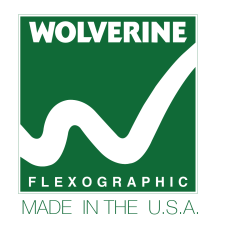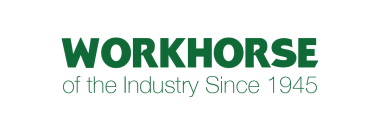FAQ
What is Flexographic Printing?
Flexographic printing is a form of printing that utilizes flexible printing plates made of rubber or plastic to print on materials used primarily for packaging. Some typical applications for flexography are paper and plastic bags, milk cartons, disposable cups and plates, candy bar wrappers and food packaging.
Key Features of Wolverine Presses
Color Stations
Three-roll flexo or reverse angle doctor blade in the HLRE Series, CPN (CUB) Series.
Anilox Rolls
Standard engraved chrome rolls or ceramic rolls. Diameter varies with model and press speed.
Register Control
Original 360 degree register control.
Color Throw ON/OFF Systems
Wolverine models can be raised and lowered by means of pneumatic or hydraulic control for on/off impression.
Drying System
For water base inks, special between color dryers with higher air volumes and velocities, along with an additional 10″ drying space between colors. Overhead tunnel can be sized according to conditions.
Automatic Tension Control
Improved infeed and outfeed tension controls, together with sensitive web support throughout the press. Special attention is given to friction to the web, which can affect tension and register.
Twin Disc Clutch
Primarily used for inline operation with extruders. Keeps the impression cylinders and web running continuously.
Unwinder/Rewinder
Center shaft-type or surface drum winders smoothly handle up to 72” diameter rolls.
Flying Splice
Automatic operation makes flying splice from the end of one roll to the beginning of a new roll. Available for 24” and 30” diameter rolls.

